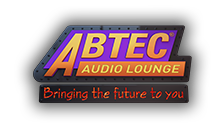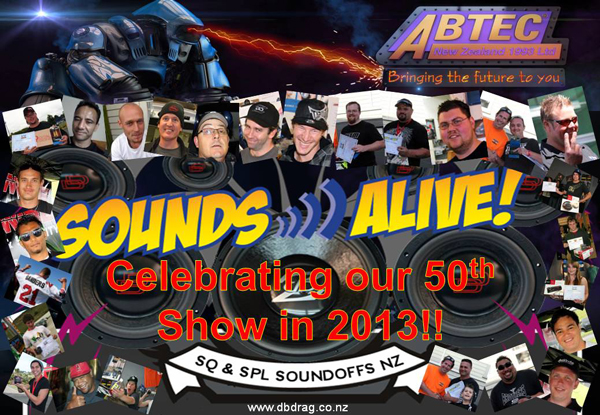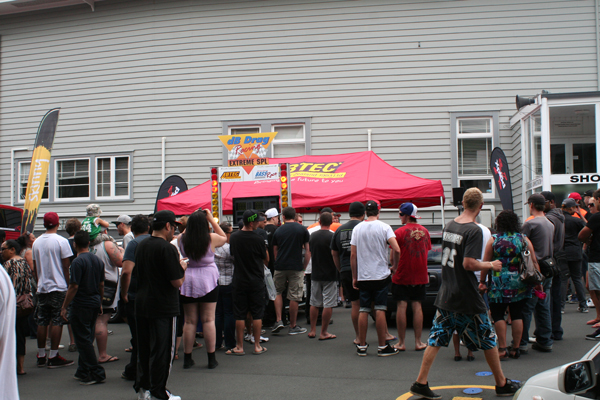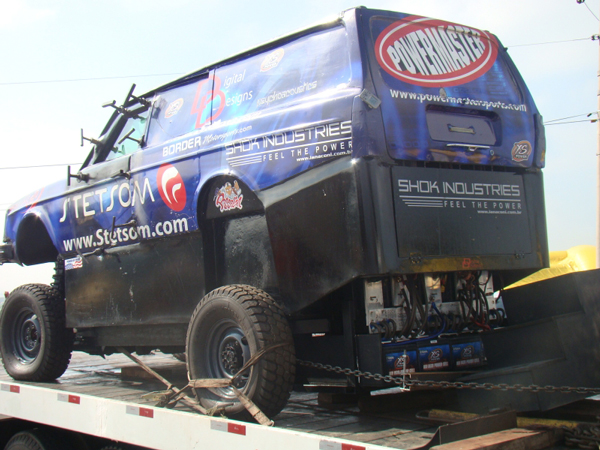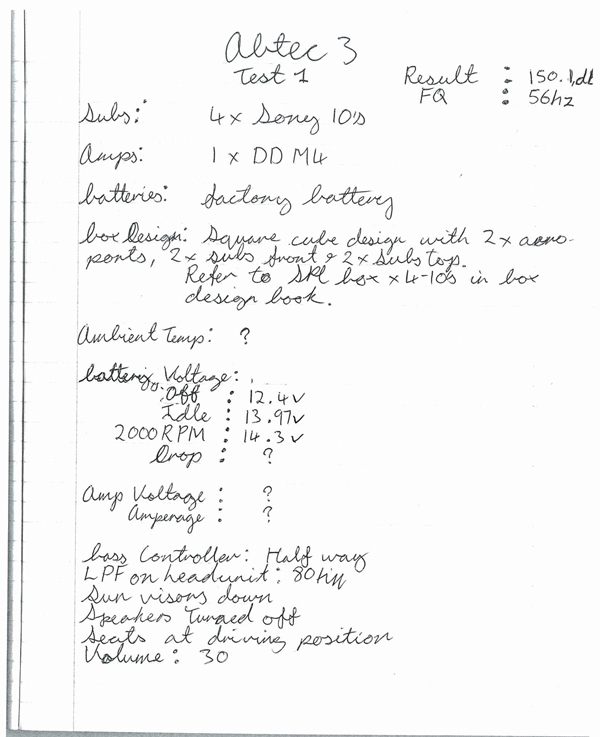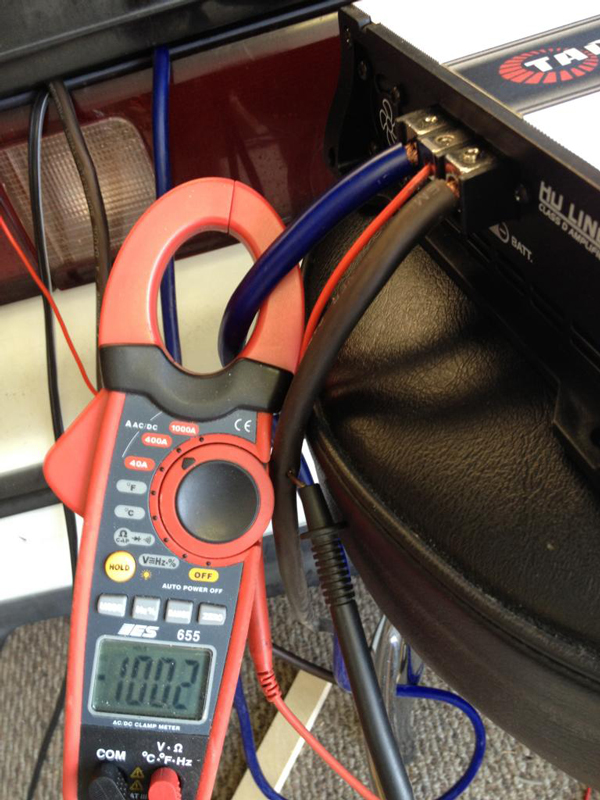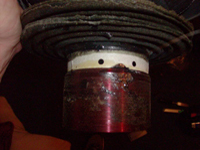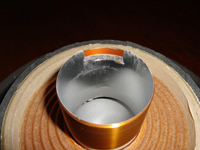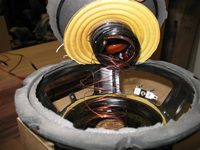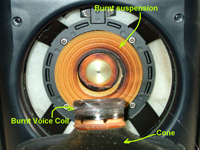So your interested in getting into SPL? The first thing you will want to do is work out how much money you want to spend, get that figure and instantly double it because I can tell you from experience that dB Drag Racing like any competitive sport can become very expensive!
I’m not writing this to change your mind about getting into SPL, in fact if competing in SPL is what you really want to do I say go for it!
I just would like to inform people that are just beginning in SPL or thinking of doing so that there is a lot more involved in it than putting a box/amp/sub in your car and turning it up LOUD!
Well before you get serious about entering SPL competitions there is one thing you should really think about, do you want a car that will Play music insanely loud? Or do you want to build a dedicated SPL car that will only be capable of Playing 3-second frequency burps?
Generally these are your options, it is possible to build musical setup or ground pounder that can do good SPL numbers but it will usually have a lot more work involved and cost a lot more too!
The overall cost of your system can sometimes be dictated by your overall goal that you are going for, this is not always the case as there is always an exception to the rule but this usually comes with years of experience.
As an example my first 150db SPL setup consisted of a $3000 3500w RMS Mono-Block, 4 x $180 350w DVC Sub-Woofers and a simple box that was designed originally for a Honda CRX dropped into my Toyota Vitz. Put all of that into perspective and some will say that’s not a big spend, others will think that is a massive spend.
Personally I know this is a small spend in comparison to other people getting similar numbers and people getting 160+ dB have been known to spend in the tens of thousands!
I try to look it like this, its a competitive sport and one thing I know from all competitive sports be it Motorsports/Rugby or even Competitive fighting there will always be a cost. And like most sport’s you have the cost of training gear, travelling, accommodation, food, etc and the more competitive you get the more cost’s will be involved!
Having a functional box that is tuned right not just for your Sub-Woofer but also for your car can be the difference between getting the numbers you want and having your Sub-Woofers last without being damaged every time you burp them!
Some designs I have seen rely on a relatively large box with an even insanely large port to get results, what I have seen in these types of designs is that it relies on the Sub-Woofer’s excursion while free-airing to push the air to the sensor. While this might net result’s for some I’m not to sure I’d be happy damaging my Sub-Woofers in this way every time I compete.
In other design’s I’ve seen use a compression system where the box is small but the port is quite long, how this works is the box builds up with pressure before forcing it out the port. I have personally used this type of box for over a year now and I am still using the same 12″ Sub-Woofers with no damage and can net 154+ dB everyday with no issues!
I am not by any way saying that my design is the one to use or the only one that nets results here, what I am saying is that the time testing and making your Sub-Woofer Enclosures are one of the most important parts of building your SPL car. After talking to several SPL Competitor’s and Car Audio Companies overseas I keep hearing the same thing, that most of the big SPL competitors build over 60+ boxes till they are happy with there designs and will build a new box just to compare very small changes made with these boxes!
The choice of car to use for your SPL build is always a hard one and should be thought through as much as the gear used inside the car. All cars have a Resonant Frequency due to the dimensions inside the vehicle, if you want to get technical about it different areas inside your car have different Resonant Frequencies so finding the Frequency at the placement of the SPL Sensor is vital to your build.
In the end of the day most of us will use what ever car we have at our disposal but the rule of thumb usually is the smaller the car the easier it is to get results at Higher Frequencies! Of course if you are playing with a wall some of this is out the window as the Resonant Frequencies and Wave Lengths will be determined by not only the placement of the wall/box but also the area space and tuning of the wall.
The gear to use is something that is debated world over and it really comes down to preference, how much you have to spend and what your goals are. It does pay to use Sub-Woofer’s that can be Re-Coned just in case you push them past their limits during testing. I personally use Entry-Level 350w RMS 12’s in my SPL build, my reason behind this is if I did blow (Which hasn’t happened yet, touch wood) them the overall cost wouldn’t hurt the bank to much and I could easily replace them before the next even’t. My goal’s are relatively low compared to others so I have no need to upgrade to a higher series of Sub-Woofer as of yet.
Preparing your car can be one of most annoying or fun jobs that are involved in turning your car into a SPL machine depending on who you are talking too, for me its one of the more exciting parts since its at this stage you start to realise what is going to become of your car.
Also if you are considering upgrading your charging system this would be the time to do so, as once you have all your power cable laid through out the car the last thing you want to be doing is to pull it all out just because the original cable you ran wasn’t capable of pushing the current needed to charge your battery banks or run your amplifiers. This is also a good time to be Sound Deadening your car and filling up all those little gaps/holes inside car aren’t needed or will let out all the pressure.
Batteries! Batteries and or an uprated alternator/alternators will become your new best friend! Having the current to maintain constant power to your amplifiers while you do your Frequency Burp can be the difference between getting the numbers you are after consistently or burning out your amplifiers due to current drop. So spend some time finding out if or how to upgrade/swap your alternator and workout how many batteries you are going to run/need for your setup.
Ok, the next bit here is going to be a little bit of a touchy subject but I feel it is an important one too! Trusting the right people!
Since building an SPL car involves handing over a lot of your hard earned cash, having the right person to build/setup and tune your system is most likely going to be one of if not the most important part of your SPL Build. The last thing you want to do is hand over your hard earned money/gear to have someone just to blow/ruin your subs/amplifiers!
I would personally suggest you either do one of three things here. You can study, ask questions and gain knowledge from people already in the SPL scene so you can build/test/tune your own car. Ask someone in the scene to oversea and help with your build or find a reputable company that is known for getting results without wrecking gear to do it for you! But this is only a suggestion, how you go about it is all up to you and remember if you can’t trust someone I wouldn’t be letting them near your build.
When it comes to testing it is important to have an accurate SPL Meter like a Termlab at hand so any changes made positive or negative can be noticed and noted down. If you don’t have use of a SPL Meter there will bound to be someone in the SPL scene willing to lend you theirs or willing to set their one up to help you test your gear.
Another thing that is very important when testing your gear is to learn how to Clamp Test your amplifiers, not only to learn its true output under load but also so you can work out impedance rise. This alone could be a blog on its own so I suggest googling Clamp Testing and have a read up on it as there is information all over the internet about it, or better yet ask me and I will point you in the right direction.
For example:
- You can see the difference one click of the volume can make to the output of your amplifiers.
- You can workout the most efficient position of your enclosure as the loudest frequency may not be the most efficient.
- Testing your batteries for voltage drop and when it occurs will also helps towards making your system more efficient too.
Keeping track of what you have tested and results from said testing is just as important as the testing itself in my opinion because if you forget the results and don’t have it written down your pretty much back to square one! This is why I have made a couple of files on my iPad, PC and in a notebook with everything from what I have tested to how I have everything setup for competition. This way if I ever have a knock to the head I can always go back to my notes.
Here is an example of one of my old notes when I started doing SPL for Abtec:
Here is a little list someone has made (Not me) to some of the findings during testing, some of these work for my car and some of them don’t and it is the complete opposite with some of my friends cars too. Here it goes:
Gain:
- Moving box around the trunk until i found the sweet spot: 0.5 dbs
- Changing box size until i found the best one: 2.2 dbs
- Removing sub´s boot: 0.1 dbs
- Negative wire run from battery to amp instead of grounding it to the car: 0.3 dbs
- 2 extra batteries: 0.2 dbs (depend on the application, i was using SMALL power).
- Printing Vinyl inside the box to make it smooth: 0.4 dbs
- PVC round over on the pressure point of the box: 0.2 dbs
- Extertnal flare on an aeroport: 0.9 dbs
- Internal flare on an aeroport: 0.7 dbs
- Duct taped old screws holes on the box: 0.3 dbs
- Sunvisors folded down: 0.5 dbs
- Moving front seats all the way forward: 0.7 dbs
- Taking out floor mats: 0.1 dbs
- Front seats vertically: 0.3 dbs
- Center console empty and open: 0.2 dbs
- Covering the sub´s pole vent hole: 0.14 dbs
- Duct tape around the sub: 0.25 dbs
- Using 8 gauge from sub to amp instead of a POS wire: 0.22 dbs
- Cooling the cabin with the a/a: 0.45 dbs
- Rounding the sub hole: 0.28 dbs
- Rounding the external edges of the box: 0.17 dbs
- Armor all the whole interior of the car: 0.06 dbs
Lost
- Raising tuning: 0.3 dbs, this depends entirely on the car!!
- Installing 45´s on non pressure points of the box: 0.4 dbs
- Steering wheel at lowest position: 0.2 dbs
- Having 2 round ports with different sizes: 0.5 dbs
- Printing vinyl outside the box: 0.3 dbs
- PVC roundover outside the box: 0.2 dbs
- Opening the glove box: 0.2 dbs
- Closing a/a vents: 0.5 dbs
- Inverting the sub´s polarity: 0.3 dbs
- Changing from PVC roundover to mdf 45´s : 0.2 dbs
When playing with a lot of power or even when competing in SPL Competitions people tend to push their systems a touch more than they usually would, putting their Sub-Woofers at risk of damage. If you damage a Sub-Woofer during competitions or use more power than the Sub-Woofer is rated at it will not be covered under Warranty.
The most common way Sub-Woofers are damaged are from heat, heat caused by either over-driving (To much power) or running Amplifiers into distortion. The damage Sub-Woofers suffer can very from torn triple joints (Suspension) and surrounds to burnt out coils. This is why earlier I was saying its important to buy a Sub-Woofer that can be re-coned just in case you have the tendency to push past the breaking point!
Hopefully this helps you or answers any questions you have about starting your new hobby of SPL, in the last year and a half of testing I have learned a lot more about SPL than I ever did while helping my brother with his SPL Build during the 90’s but in saying that things have changed including the quality of gear since then. I’ve still got a lot more to learn too and I am looking forward to it and helping people out that want to get into the hobby of SPL.
You are most likely reading this thinking “Hobby?” and SPL is just that to me a hobby, my first love will always be loud music and SPL will always be second to that but DON’T let that put you off SPL if that is what you really want to be doing! Just remember, have fun out there!
